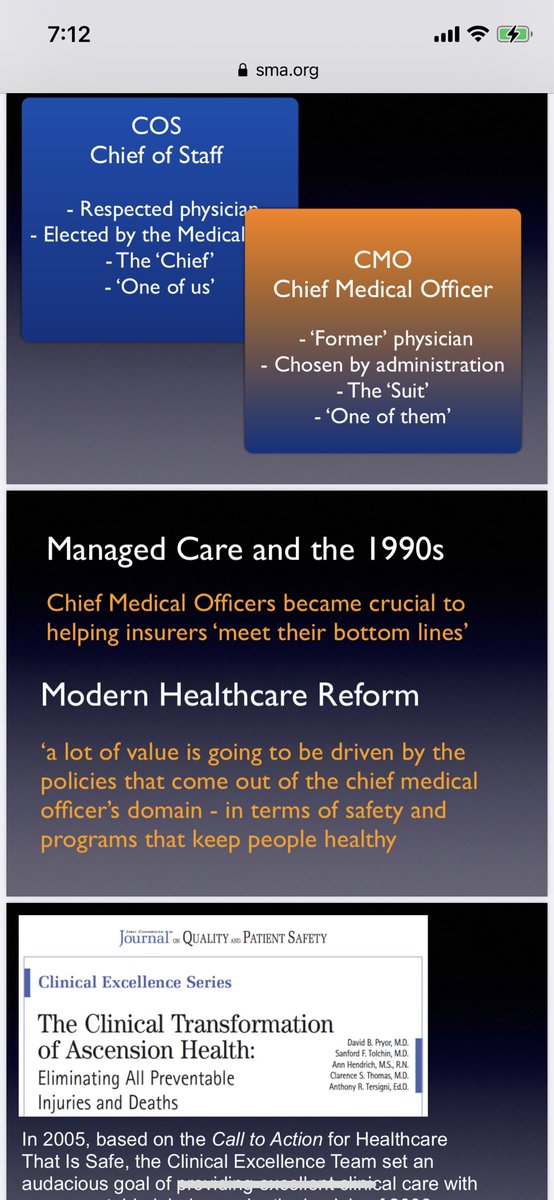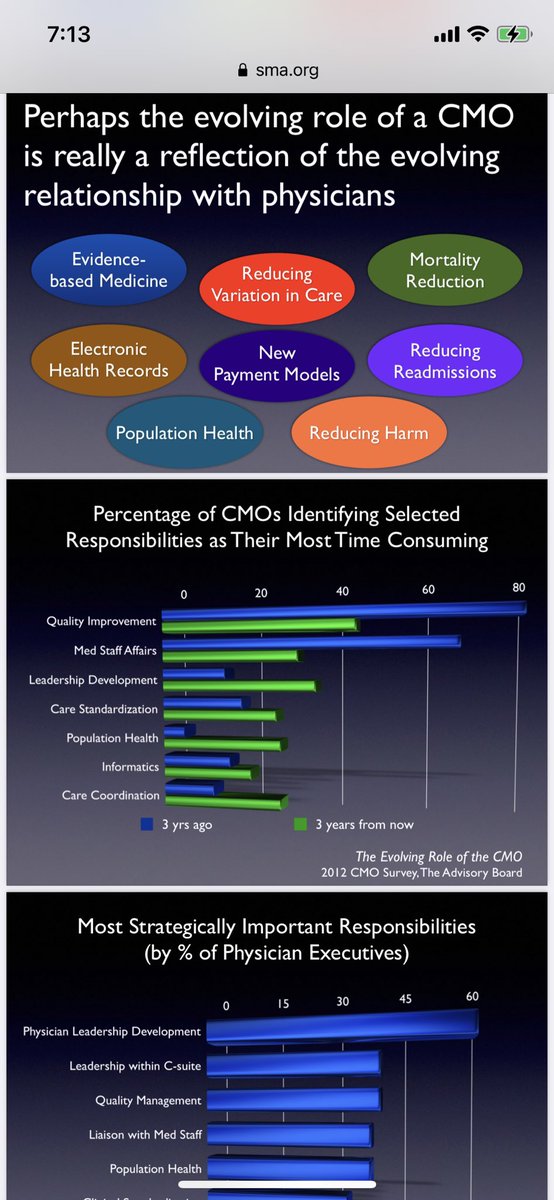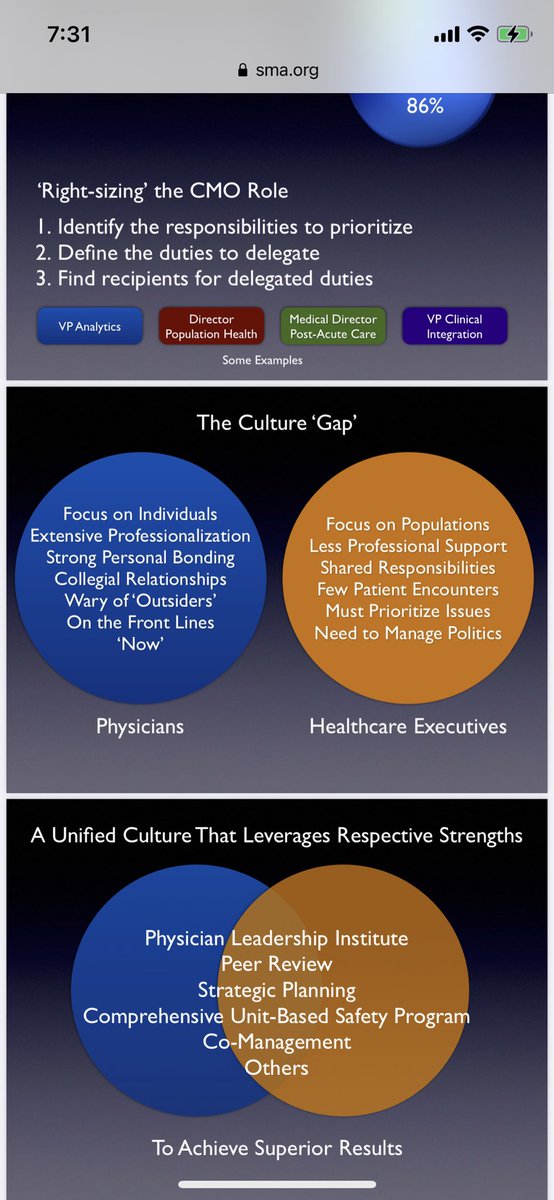
We need more doctors who speak up.
Yes, I know we have worked hard to get where we are and are regulated/monitored in so many ways it is scary to deviate and take a risk of censure or discipline. It feels like we are vulnerable, not strong.
Speak up anyhow.
Yes, I know we have worked hard to get where we are and are regulated/monitored in so many ways it is scary to deviate and take a risk of censure or discipline. It feels like we are vulnerable, not strong.
Speak up anyhow.
https://twitter.com/DrPhillipsMD/status/1343381674005057540
We can’t let our reputations or achievements become reasons why we stay silent.
Opposite, what is it all for anyhow?
What does your title mean?
They say you can’t take it with you in regards to money. But you aren’t going to take your CV with you either.
Opposite, what is it all for anyhow?
What does your title mean?
They say you can’t take it with you in regards to money. But you aren’t going to take your CV with you either.

We can’t be telling the most vulnerable to speak up, like those early in career.
While I have yet to understand the details of what went on here, what is reported is deeply concerning.
Even with a good lawyer, this can derail an entire career right at its start.
While I have yet to understand the details of what went on here, what is reported is deeply concerning.
Even with a good lawyer, this can derail an entire career right at its start.
https://twitter.com/EricaMichelle44/status/1343568690550173696
I don’t intend to end up in court
..except at an expert witness again like I was for the AG’s office...
However, I do know that if I were to engage in any kind of action or have an action taken against me, my record is squeaky clean and I have credibility built over two decades
..except at an expert witness again like I was for the AG’s office...
However, I do know that if I were to engage in any kind of action or have an action taken against me, my record is squeaky clean and I have credibility built over two decades
A lot of us get into medical school, thru medical school & into leadership positions
through high standards, often perfectionism
becomes our Achilles’ heel
sometimes we seem powerful
but we live in
fear
(maybe of public controversy tarnishing our reputations)
through high standards, often perfectionism
becomes our Achilles’ heel
sometimes we seem powerful
but we live in
fear
(maybe of public controversy tarnishing our reputations)
I get frustrated with the constant battles that I see play out between doctors and nurses
but I do often find that nurses understand the experience of being disempowered
are intentional in having allies/support
doctors come from an individualistic culture, feel alone
but I do often find that nurses understand the experience of being disempowered
are intentional in having allies/support
doctors come from an individualistic culture, feel alone
Leadership of any kind is often a very lonely experience.
It does entail sacrifice
It is hard to know went to navigate around versus when to take a stand. When to sacrifice the title/role itself. What kind of loneliness to accept?
It does entail sacrifice
It is hard to know went to navigate around versus when to take a stand. When to sacrifice the title/role itself. What kind of loneliness to accept?
There often isn’t any single right answer for how to lead or when to make certain sacrifices or not.
What I do know is if your need for achievement is driven by #impostersyndrome as opposed to courage, your ability to be an ethical leader is compromised by your insecurity.



What I do know is if your need for achievement is driven by #impostersyndrome as opposed to courage, your ability to be an ethical leader is compromised by your insecurity.




Traditionally physicians were self-employed (outside of the military context) and this created a balance of power with administration.
Nurses were employed but many had the protection of a union.
Now, I worry about loss of physician courage.
sma.org/wp-content/upl…



Nurses were employed but many had the protection of a union.
Now, I worry about loss of physician courage.
sma.org/wp-content/upl…




What was not okay in that paradigm was the way in which nurses & many members of care team were bullied by physicians.
There also was an undervaluing of outside of a hospital care of that was community-based.
As we are shifting the system, I’m seeing less physician courage tho.
There also was an undervaluing of outside of a hospital care of that was community-based.
As we are shifting the system, I’m seeing less physician courage tho.
Outside of medicine and there was this high profile case, and a dispute over whether @timnitGebru was fired or resigned. What is clear is the irony of departure of an #AI ethics researcher over an AI research paper. These are exactly what leaders face.
washingtonpost.com/technology/202…
washingtonpost.com/technology/202…
Those of us who are physician leaders often lack the training for these kinds of ethical dilemmas that we are going to face.
Unlike physician leaders in the past, we depend on, often non-clinical, healthcare administration for our jobs (and paperwork needed for next job).
Unlike physician leaders in the past, we depend on, often non-clinical, healthcare administration for our jobs (and paperwork needed for next job).
Granted, repeating these parts of the slide deck that I shared earlier
where there has been a shift of priorities from revenue generation to #populationhealth and #quality
I can’t say that I disagree with the system change though I see new weak spots on #ethics

where there has been a shift of priorities from revenue generation to #populationhealth and #quality
I can’t say that I disagree with the system change though I see new weak spots on #ethics


I post about this often
and it is something I hate about how
women are socialized
&
rewarded at work
but the rise of the woman leader (doc or nurse)
sometimes can result in greater focus on compliance that translates into controlling other people
law.com/corpcounsel/20…
and it is something I hate about how
women are socialized
&
rewarded at work
but the rise of the woman leader (doc or nurse)
sometimes can result in greater focus on compliance that translates into controlling other people
law.com/corpcounsel/20…
We hear about shattering the glass ceiling
yes, it is a barrier
=catch-22
shattering is violent
glass shatters in “riots”
one is not rewarded as a “rebel” or contrarian
rewards go to the compliant
politely knocking on the door to be let in
often means being quiet/agreeing
yes, it is a barrier
=catch-22
shattering is violent
glass shatters in “riots”
one is not rewarded as a “rebel” or contrarian
rewards go to the compliant
politely knocking on the door to be let in
often means being quiet/agreeing
After the glass ceiling, the glass cliff awaits a woman and/or minority
another experience in insecurity & loneliness
If only token, should you stay for “you can’t be what you can’t see” & representation matters?
If you fall: “she could not do it”
hbr.org/amp/2011/01/ho…
another experience in insecurity & loneliness
If only token, should you stay for “you can’t be what you can’t see” & representation matters?
If you fall: “she could not do it”
hbr.org/amp/2011/01/ho…
Women who get these roles often have more courage than our peers. We disregard labels. We do not respect “boundaries.” We breach the barricade, shatter the glass ceiling. More common in WOC. “Women of color are the biggest professional risk-takers”
info.kpmg.us/news-perspecti…
info.kpmg.us/news-perspecti…
But is a WOC allowed to navigate spaces same way? Her communication is constantly scrutinized: “rude”, “intimidating”
Women often not seen as a physician in the first place
Classic sexist responses to women who speak up, holdover from Victorian gender roles: “shut her up”



Women often not seen as a physician in the first place
Classic sexist responses to women who speak up, holdover from Victorian gender roles: “shut her up”




I post this often as well, but often successful c-suite women need to be “tough” and fit into the “old boys club” & characterize harassment/bullying as something they had enough “grit” to overcome.
= Personal advancement but cultural status quo.
bizjournals.com/bizwomen/news/…
= Personal advancement but cultural status quo.
bizjournals.com/bizwomen/news/…
So which leaders can invoke images of Knights of the Round Table to fall on his sword? (or sacrifices to not comply with wrongdoing)
Who falls off a glass cliff, is “weak”, she could not cut it” (gif)
How does this affect ability to take an ethical stance?
Who falls off a glass cliff, is “weak”, she could not cut it” (gif)
How does this affect ability to take an ethical stance?
One of the best sessions on how to be an ethical physician leader was this CMO Academy by the AAPL. Yes, is a pretty non-diverse group in that room, but sometimes when you can remove identity topic and isolate ethics, you can learn really useful things.
shop.physicianleaders.org/products/2020-…
shop.physicianleaders.org/products/2020-…
I still don’t agree with this @nature article being retracted, cuz, frankly, it is from male mentors that I have learned the most about courageous and ethical leadership. Women, too often are precariously perched under a glass ceiling or on a glass cliff.
nature.com/articles/s4146…
nature.com/articles/s4146…
Those of you who follow me likely see me posting the same things over & over again.
No leadership class or coach has the answers: not for the changing system, for interplay of identity and leadership.
Who is a leader? How to lead?
It is like trying to solve a Rubik’s cube.
No leadership class or coach has the answers: not for the changing system, for interplay of identity and leadership.
Who is a leader? How to lead?
It is like trying to solve a Rubik’s cube.
That’s also why I unroll my own threads. I’m iterating on my own thoughts looking at the same things from new perspectives and trying to fit familiar pieces with new ones. Or deconstruct the existing structure to built it differently. How else to dismantle structural inequity?
@threadreaderapp please unroll
• • •
Missing some Tweet in this thread? You can try to
force a refresh



